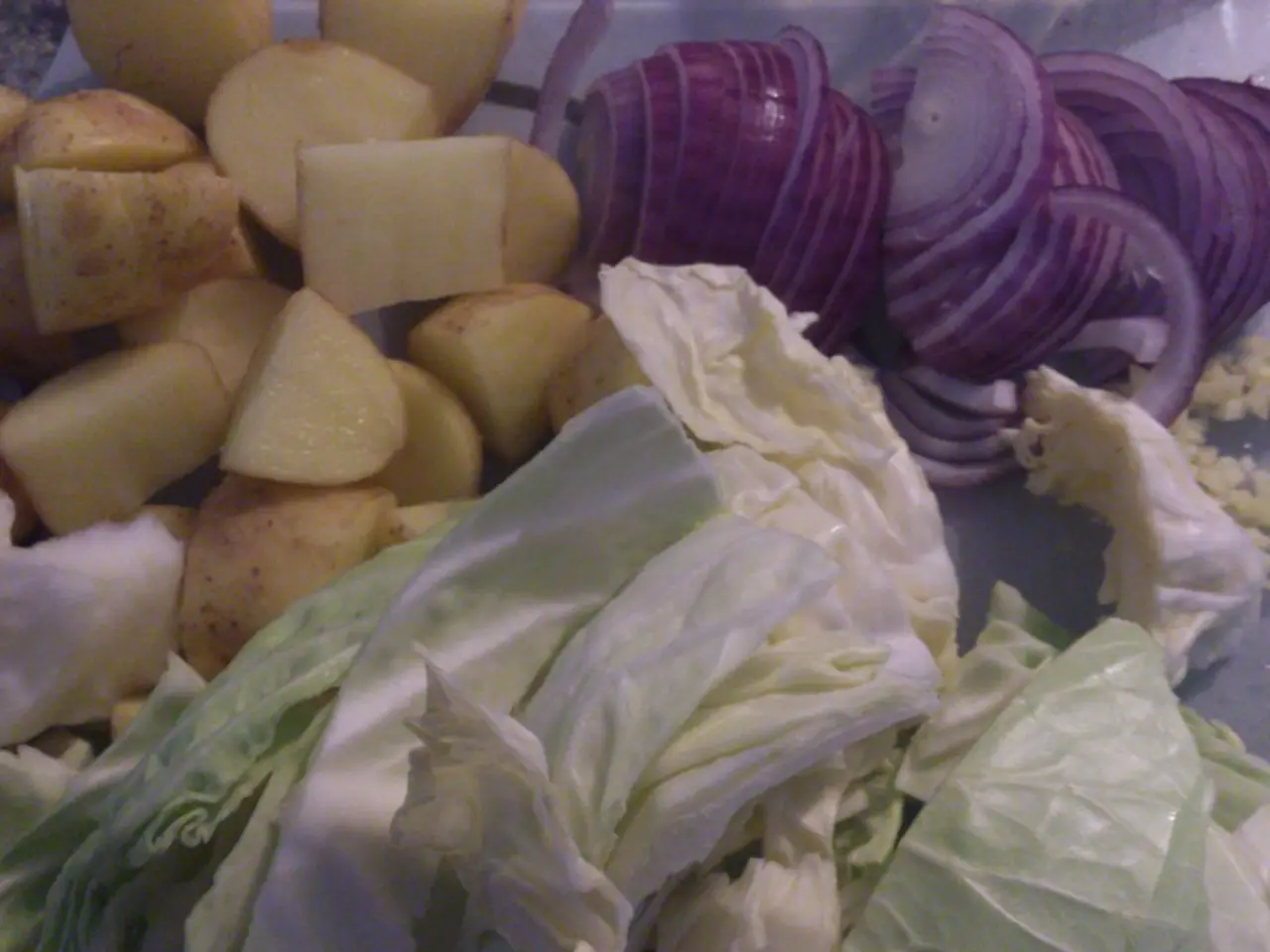Guide for Successfully Cultivating Organic Cabbages!
In the quest for a bountiful and nutritious garden, growing organic cabbage is an excellent choice. This superfood, rich in vitamins A and C, offers numerous health benefits and can be easily cultivated following a few simple steps.
**Soil Preparation**
Cabbage thrives in well-drained, moisture-retentive, loamy soils rich in organic matter. It's essential to avoid highly acidic soil. Prepare the soil by ploughing deeply a few weeks before planting and adding compost or well-rotted manure to enhance soil fertility.
**Planting**
You can plant cabbage seeds directly into the garden or use seedlings. For direct seeding, about 2 kg of seeds per hectare is recommended. Transplant well-hardened seedlings when they reach the desired size. Ensure ample spacing between plants, with large-headed varieties 600 to 700 mm apart between rows and 450 mm within rows, and smaller varieties requiring 600 mm between rows and 300 mm within rows. Plant in moist soil, firm the soil around the roots, and irrigate immediately after planting.
**Organic Practices**
Adopt organic practices to ensure a healthy crop. Use natural pest control methods, such as introducing beneficial insects or using neem oil, instead of chemical pesticides. Mulch around plants to retain moisture, suppress weeds, and keep the soil temperature stable. Practice crop rotation to maintain soil health and reduce pests and diseases.
**Health Benefits of Growing and Consuming Cabbage**
Cabbage is packed with nutrients, including vitamin C, vitamin K, manganese, potassium, and calcium. Rich in antioxidants, cabbage helps protect against oxidative stress and inflammation. The high content of glucosinolates in cabbage may help prevent cancer by supporting detoxification processes. Cabbage is a good source of dietary fiber, which supports digestive health, and can help boost the immune system.
By growing your own organic cabbage, you can ensure a fresh supply of this nutritious vegetable while avoiding potential chemical residues found in non-organic produce. Freshly harvested cabbage can last up to two weeks when stored in the fridge.
Cabbage requires specific care to ensure healthy growth, including choosing the right variety, preparing the soil, and planting the seeds. Homegrown cabbage offers unparalleled freshness and taste compared to store-bought varieties.
Growing your own organic cabbage is a rewarding and sustainable way to eat healthy and contribute positively to the environment. Start planting your own cabbage seeds today for a taste and nutrition difference. If you want more heads from the same plant, leave a few outer leaves and cut through the stem. New smaller heads will develop.
Organic farming helps preserve the environment by promoting soil health and reducing pollution. Organic cabbage is free from harmful pesticides and chemicals, ensuring that it is healthy and safe to eat. Embrace the joy of growing your own organic cabbage and reap the rewards of a nutritious and delicious harvest.
- For the cultivation of cabbage, it's important to use well-drained soil that retains moisture, preferably loamy and rich in organic matter, found in home-and-garden stores, to ensure a bountiful and nutritious garden.
- Instead of chemical pesticides, adopt organic practices like introducing beneficial insects or using neem oil to control pests, as part of a healthier, more organic lifestyle in gardening.
- Seeds or seedlings can be used for planting cabbage in the garden, with careful consideration of the variety's size when determining the spacing between plants in the indoor or outdoor garden.
- nurturing your organic cabbage garden with care, using organic fertilizers like compost or well-rotted manure, will help create the ideal environment for the seeds to grow and thrive.
- The benefits of growing and consuming cabbage are numerous, including a rich supply of vitamins A and C, as well as antioxidants, fiber, and minerals like potassium and calcium.
- Embrace gardening as a hobby and contribution to a sustainable lifestyle by growing your own organic cabbage indoors or outdoors, and enjoy the fresh taste, improved health, and environmental benefits it offers.




